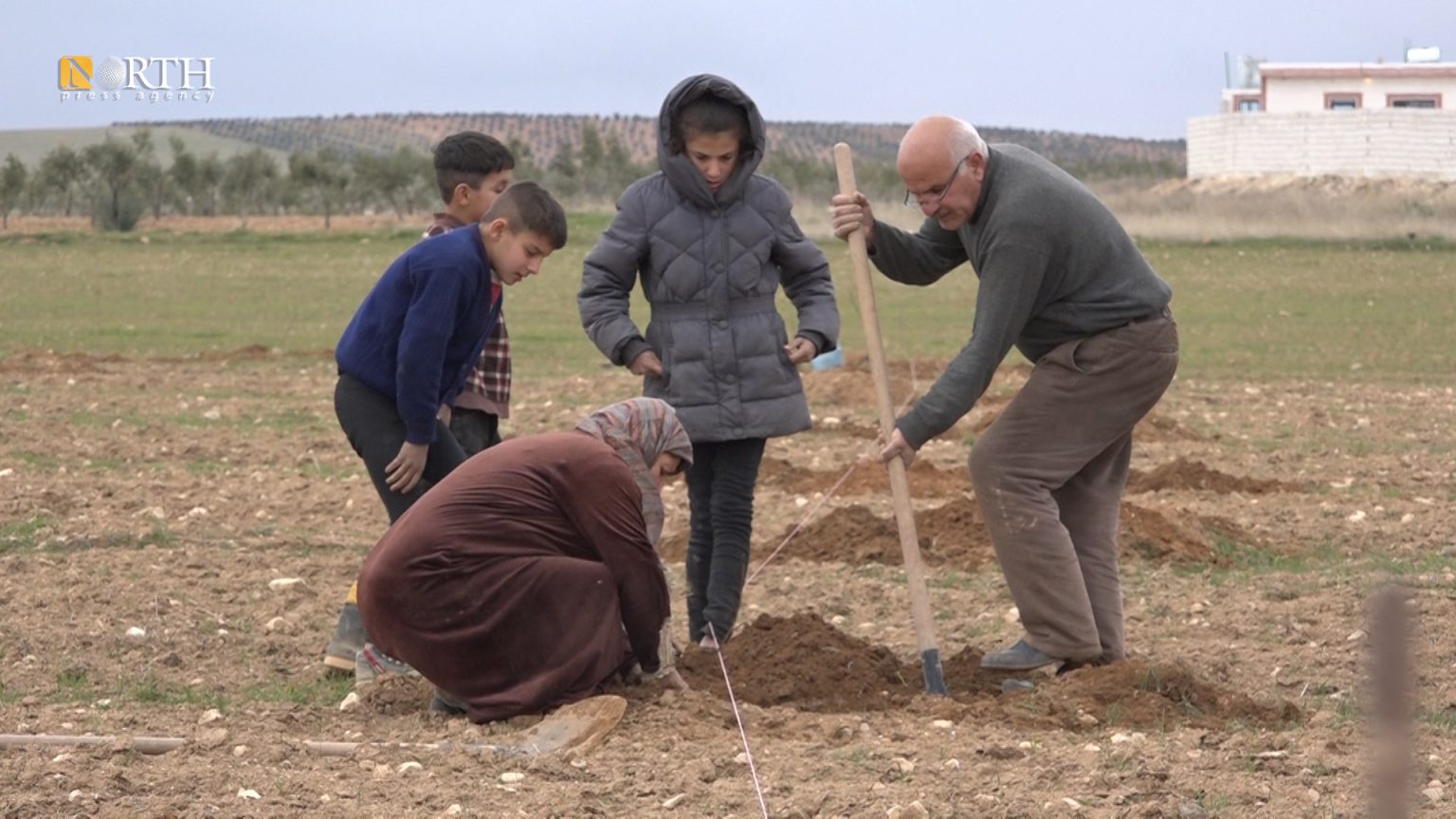KOBANI, Syria (North Press) – Farmers in the southern and eastern countryside of northern Syria’s Kobani say that they have resorted to planting their lands with trees, especially pistachio, after years of declining wheat and barley production.
During the current season, the area recorded low rainfall rates and the increase in fertilization costs due to a further collapse in the value of the Syrian pound.
100,000 trees
Fathi Mustafa, 51, a farmer from the village of Helenj to the east of Kobani, said that about two months ago, he started preparing to plant about 500 seedlings of pistachios on his two-hectare land.
He added that planting wheat and barley no longer yields good production, which prompted him to plant trees.
By the end of 2020, the area of land planted with fruit trees in Kobani was about 585 hectares, containing more than 116,000 trees, including about 82,000 olive trees and more than 31,000 pistachio trees, in addition to about 3,000 trees of various fruits.
License and new space
In January, 560 farmers applied for a license to plant about 120,000 trees in a space of 600 hectares.
A pistachio tree needs years of attention and care to start producing, but a years’ worth of production of pistachio is better than several years of wheat and barley, according to farmers.
Along with olives, pistachio are the most popular trees among Kobani’s farmers, who have recently begun to plant them.
Each hectare of land can be planted with at least 200 trees, and one kilogram of pistachio costs between three and five dollars depending on its quality.
Digging and watering costs
Kamiran Safqan, 43, a farmer from the village of Mukharej to the south of Kobani, said that he will plant 800 trees this year after he obtained a license from the Agriculture Directorate of the Autonomous Administration to get diesel.
However, “the diesel they give us, is not enough as olive and pistachio trees need to be plowed four or five times in the summer,” Safqan added.
The Agriculture Directorate grants an amount ranging between 100 and 150 liters of diesel per hectare to be planted with trees at a price of 75 Syrian pound (SYP) per liter.
According to farmers in Kobani, the cost of digging each hole to plant trees ranges between 600 and 800 SYP, while the price of each plant ranges between 800 and 1500 SYP, depending on its age and length.
“Providing seedlings and agricultural loans will encourage farmers to plant trees,” Safqan noted. Safqan believes that the Agriculture Directorate should support farmers by granting agricultural loans and securing tree plantings at lower prices than private nurseries.
Agricultural areas shrinking
The phenomenon of replacing wheat and barley with fruit trees is not limited to Kobani only. Rather, farmers in the countryside of Manbij and Raqqa tend to plant trees, and they expect to yield better profits from them than the grains they used to plant during the past decades.
“These areas which are planted with trees, negatively affect the cultivation of wheat and barley,” Fahed Abbas, an official in the Agriculture Directorate, said.
Despite this, the Agriculture Directorate continues to grant planting licenses, as trees could be planted until the end of March.
Abbas pointed out that “no decision regarding granting agricultural loans has been issued yet.”

